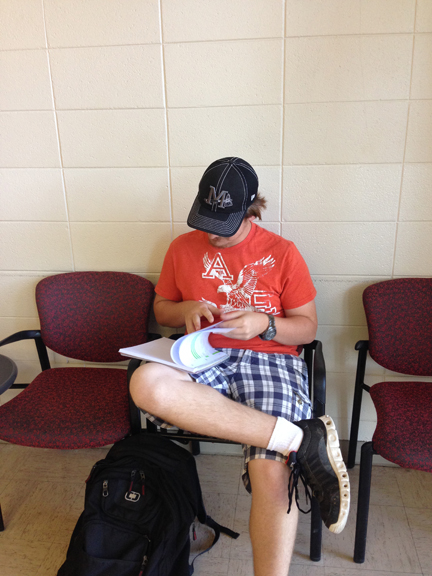As freshmen and sophomores arrive at JCJC, they learn to develop their own personal study routines. While forming these habits, students also have to learn to avoid procrastination and manage their free time. Managing various responsibilities can stress students out and being unorganized often leads to late-night cram sessions or hastily produced essays.
While some students believe their creative juices flow best last minute, putting off assignments means being over stressed and low on sleep. Students and experts will agree that there are more effective and certainly healthier ways of ensuring diligent study patterns.
Freshmen coming from public high schools have, on occasion, never had to put much of their time into studying for classes. Unfortunately, those kind of habits don’t work for college classes. This transition can be a culture shock to freshmen who find themselves unprepared for classes that demand hefty sums of studying and lots of dedication.
Sophomore Class President, Landon Singleterry, gives advice to upcoming freshmen or struggling sophomores who have difficulty studying. Singleterry said, “Find a buddy. It’s extremely useful that you try to find a group of people who are taking the same classes who will hold you accountable.”
In fact, the Casualty Actuarial Society found that studying with a group makes students 50 percent more likely to retain information even though 85 percent of polled college students claim that they would rather study alone.
It is imperative to first establish, then expand on your methods of studying in college. To be successful, organization, dedication and time management will have to become a priority. Maintaining regular study habits may be inconvenient at times and even challenge you to choose between responsibilities, but it is a necessary part to achieve your best work.
by Brandon Hussey


